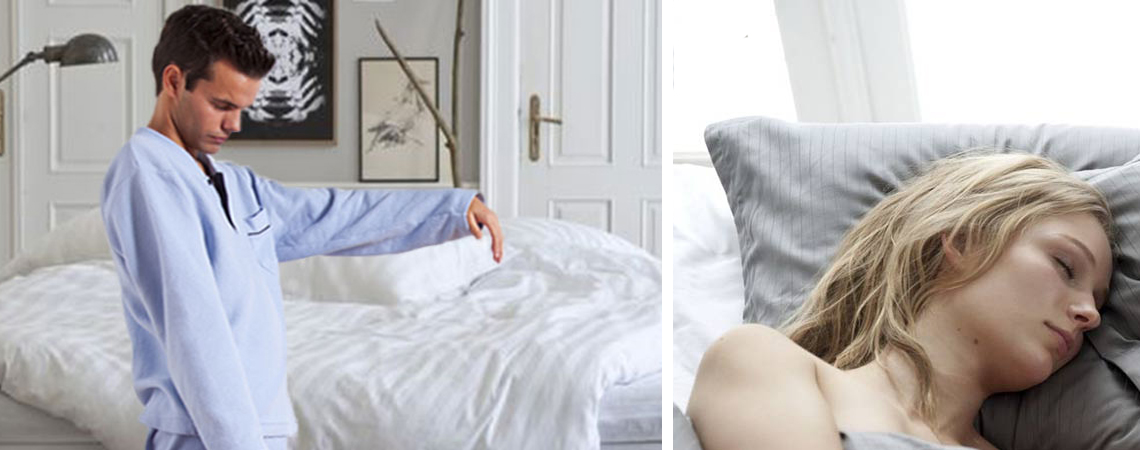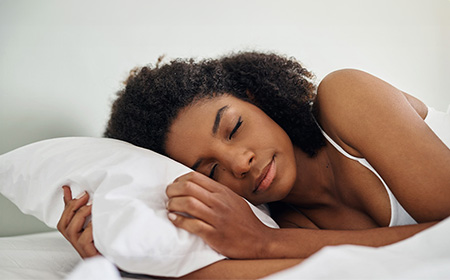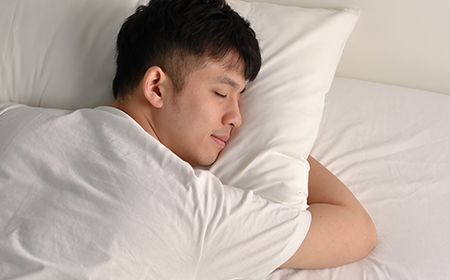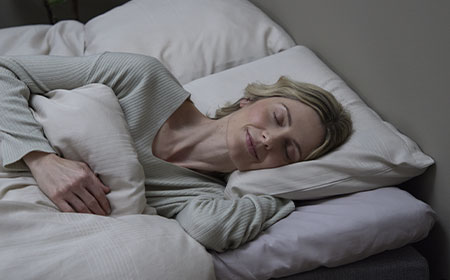Have you ever wondered why some people talk and even walk in their sleep? Sleepwalking is a behaviour disorder when you sleep, but what causes it, and can we prevent it? Read on to learn about sleepwalking and sleep talking causes and symptoms.
Why do people sleepwalk and talk in their sleep?
Sleepwalking or talking in your sleep is completely normal and quite harmless. While sleepwalking only occurs during a deep sleep, talking in one’s sleep, also called somniloquy, can occur during all stages of sleep.
Talking in your sleep
Sleep talking occurs amongst both children and adults. Some speak understandably in their sleep, while others mumble and some say things that are completely incomprehensible. If you are disturbed by someone talking in their sleep, it can sometimes help to wake the person up. Children will often outgrow their sleep talking, but even if adults talk in their sleep, it is usually completely harmless. However, if it is caused by a more serious sleep disorder such as sleep apnoea, you should react.
Other factors that may cause somniloquy are: insomnia, fever, depression, stress, or intake of alcohol or drugs.
Sleepwalking
Sleepwalking, also called somnambulism, is most common amongst children, but some adults also sleepwalk. Often, sleepwalkers will not only walk in their sleep but they will also perform other tasks whilst sleeping. Often, the person sleepwalking remains in a deep sleep during the entire episode, and therefore they will rarely be able to remember what happened. It is usually during the first third of the sleep cycle that sleepwalking occurs.
It is not entirely clear what exactly causes some people to sleepwalk. However, experts have found that sleep deprivation, extreme fatigue, stress and anxiety, fever, medication, alcohol and drugs, and a full bladder can result in sleepwalking.
Is it possible to cure sleepwalking and somniloquy?
Since sleepwalking is not dangerous and does not affect the quality of your sleep, it's not usually necessary to seek help. If the sleepwalker gets injured during episodes or leaves home, it is then advisable to consult a doctor. If your nightly walks are due to a full bladder, it is advisable to empty your bladder before going to bed. But overall, regular sleep and a healthy sleep pattern can reduce the likelihood of sleepwalking.
As somniloquy (sleep talking) is completely harmless, it is not necessary to treat. However, if it's bothersome then you should seek help. If it is due to stress, anxiety or dysfunctional sleeping patterns, these are causes that should also be treated. You can correct the problem yourself by attending to your sleep.
Sources:
http://www.sleepmanagement.md/sleepdisorders/sleepwalking.aspx http://www.huffingtonpost.com/2015/03/10/why-sleep-talk_n_6801650.html http://www.scientificamerican.com/article/why-do-some-people-sleepwalk/ http://my.clevelandclinic.org/services/neurological_institute/sleep-disorders-center/disorders-conditions/hic-sleepwalking




